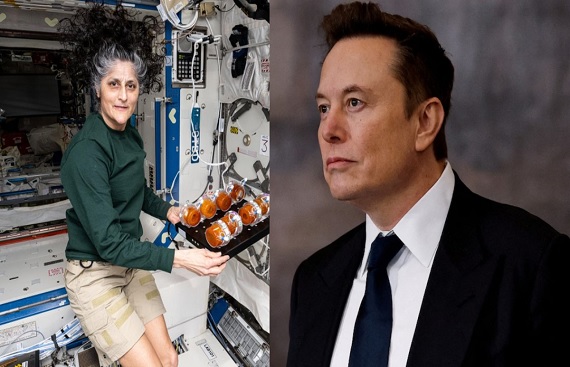Sunita Williams and Elon Musk Clash Over the Future of the ISS
By
siliconindia | Thursday, 06 March 2025, 04:55 Hrs

NASA astronaut Sunita Williams has pushed back against SpaceX CEO Elon Musk’s suggestion to deorbit the International Space Station (ISS) earlier than planned, asserting that the station is still in its prime and should remain operational until at least 2030.
Speaking to reporters from aboard the ISS, Williams highlighted the station's ongoing contributions to science and research. 'It’s not the right time' to shut it down, she stated, emphasizing the valuable experiments being conducted.
NASA plans to deorbit the ISS by the end of the decade through a controlled crash into the Pacific Ocean. SpaceX secured an $800 million contract last year to assist with the process.
‘We’re actually in our prime right now’
When asked about the station’s condition and whether it could last until 2030, Williams responded enthusiastically. “This place is ticking. It’s just really amazing. So I would say we’re actually in our prime right now. We’ve got all the power, all of the facilities up and operating. So I would think that right now is probably not the right time to call it quits”.
She expressed surprise at the sheer volume of research still happening on board, adding, “We have probably till 2030 in our agreements. And I think that’s probably really accurate, because we should make the most of this space station for our taxpayers and for all of our international partners, and hold our obligations and do that world-class science that this laboratory is capable of”.
‘Let’s go to Mars’, Musk pushes for early ISS shutdown
Meanwhile, last month, Musk argued that the ISS offers 'very little incremental utility' and suggested deorbiting within two years. “It is time to begin preparations for deorbiting the @Space_Station. It has served its purpose. There is very little incremental utility. Let’s go to Mars”, Musk posted on X.
When asked if he meant deorbiting before 2030, Musk clarified that the timeline is ultimately a presidential decision. “The decision is up to the President, but my recommendation is as soon as possible. I recommend 2 years from now”, he said.
The ISS, which began with the launch of its first module in 1998, has grown to 16 modules over 25 years. But decades in orbit have caused wear and tear, raising safety concerns and the need to plan the future of human space presence in low-Earth orbit.
The debate between Musk’s vision for Mars and Williams’ commitment to maximizing the ISS’s potential highlights a pivotal moment in space exploration, as NASA, SpaceX, and international partners navigate the station’s final chapter.
